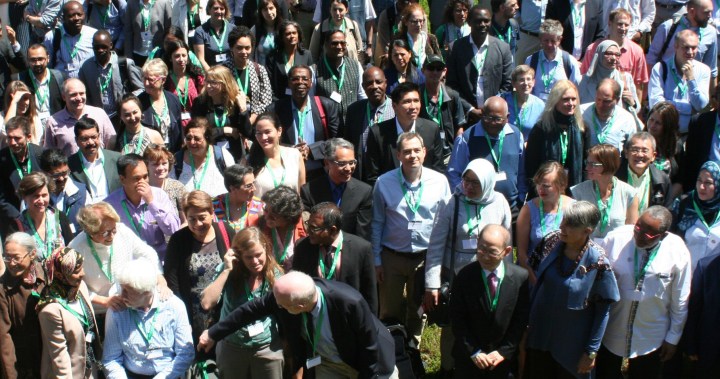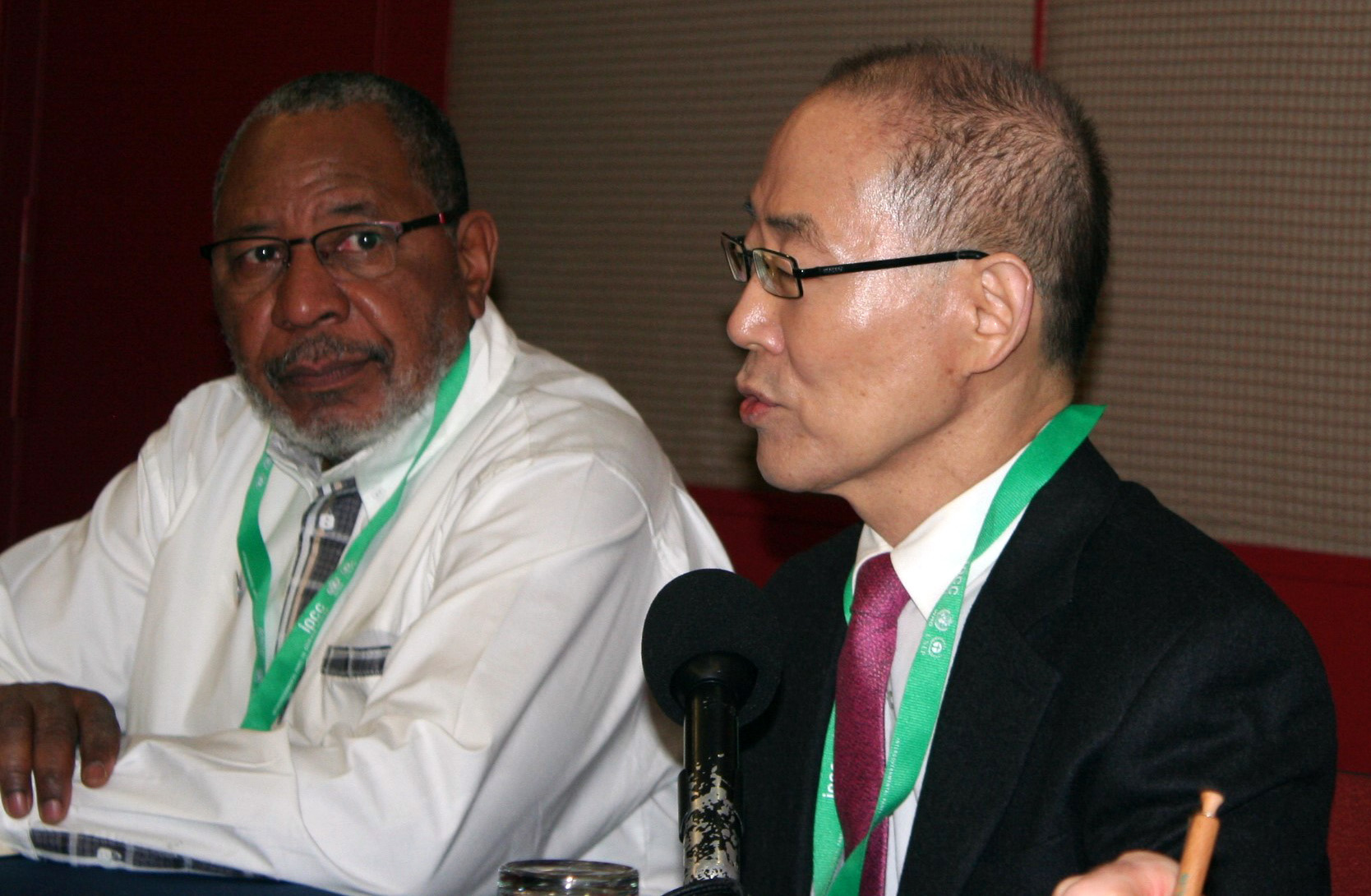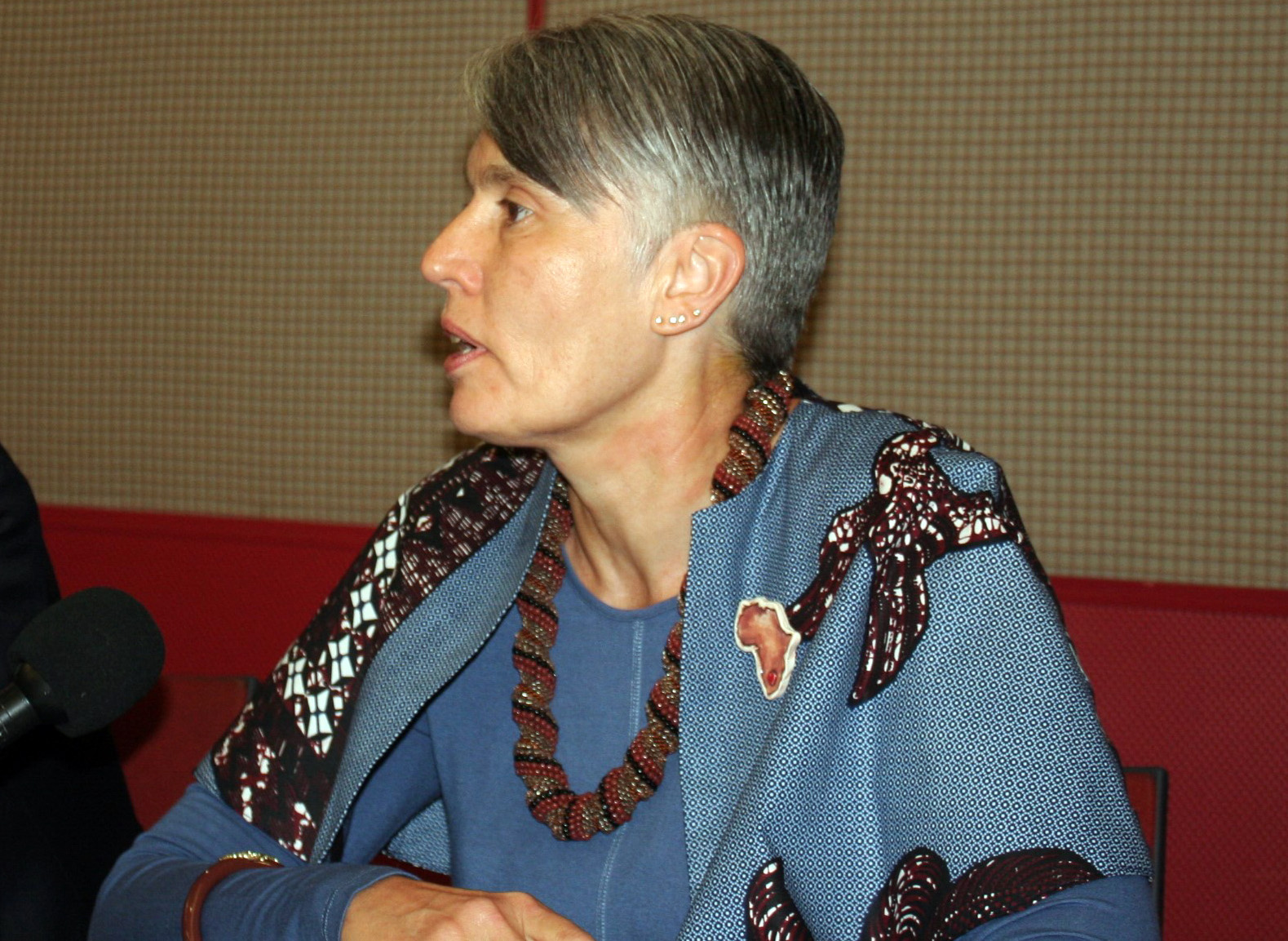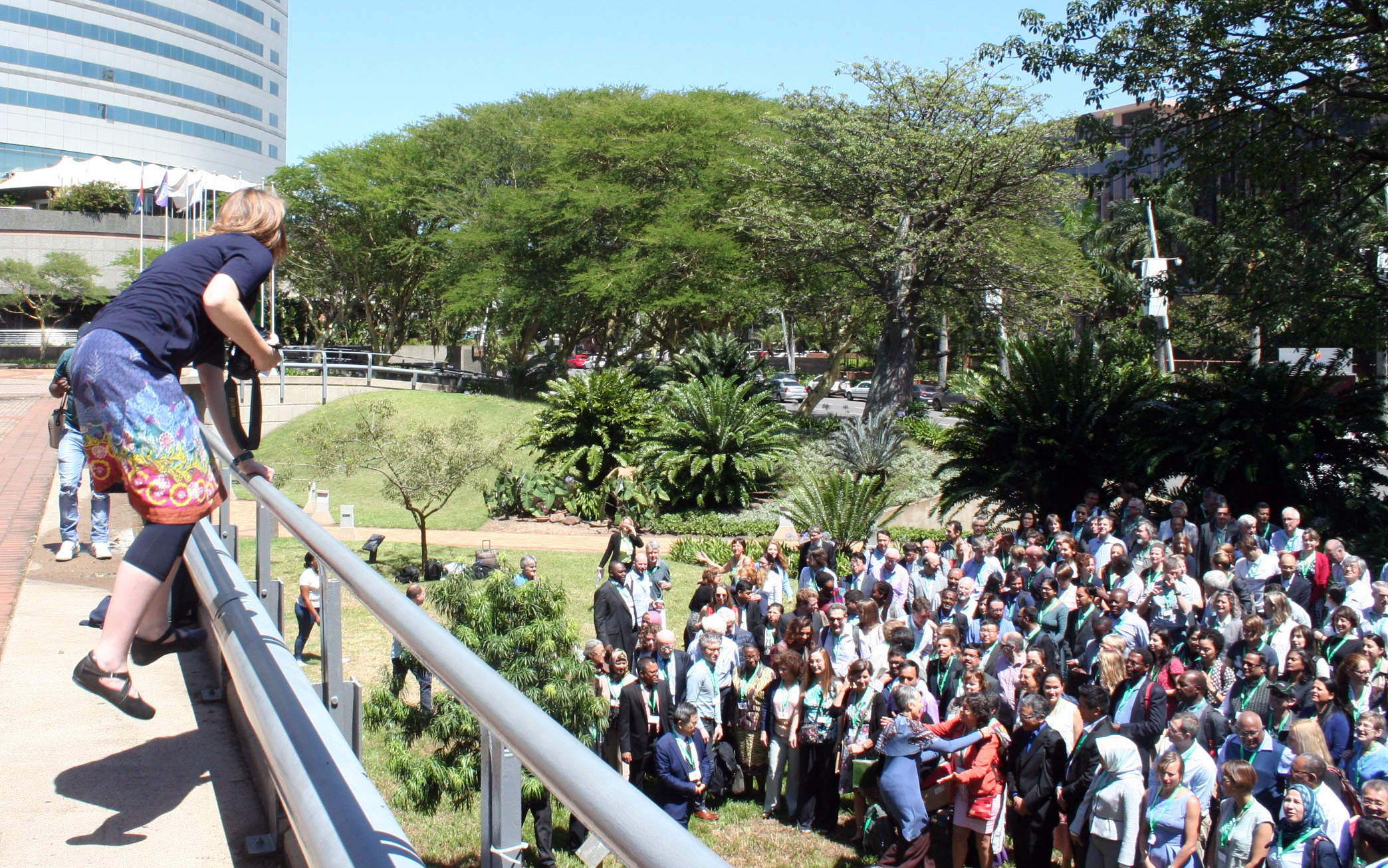OUR BURNING PLANET
Business coming on board, says top UN climate change official

Scientists appointed by the UN’s top climate change advisory group are in Durban helping to compile a series of new reports, culminating with the publication of the Sixth Assessment Report (AR6) in 2021. Professor Hoesung Lee, the UN’s top climate change official, was upbeat at the start of the Durban meeting, noting that he sensed an increasing awareness and sensitivity in the business world around the risks and implications of global climate change.
Nearly 30 years after a United Nations expert report sounded an official alarm bell and urged human society to reduce the volume of farming and factory gases heating up the planet, more than 250 scientists have arrived in Durban to compile the latest expert report on what can be done to avoid runaway climate change.
Scientists appointed by the UN’s top climate change advisory group are helping to write, review and approve a series of new reports, culminating with the publication of the Sixth Assessment Report (AR6) in 2021.
But after three decades of snails-pace negotiations, countless official reports and the recent withdrawal of the United States from a global climate change agreement, what difference will the latest report make? Will world governments heed this latest scientific advice and take action fast enough?
Professor Hoesung Lee, the UN’s top climate change official and chairman of the Intergovernmental Panel on Climate Change (IPCC), appeared upbeat at the start of the Durban meeting on 21 January, noting that he sensed an increasing awareness and sensitivity in the business world around the risks and implications of global climate change “including the systemic risks to the economy”.

Prof Hoesung Lee, chairman of the Intergovernmental Panel on Climate Change, and his deputy Dr Youba Sokona, speak at the Durban climate change meeting. Photo: Tony Carnie
Lee, a South Korean economist who has previously worked for the giant Exxon-Mobil oil corporation and served on the board of directors of the Hyundai Corporation, said many business leaders were now obliged to report on their companies’ vulnerability to climate change.
At a media briefing before the five-day meeting, Lee said:
“We believe our report will be much more policy relevant to the real needs of the business world.”
Responding to questions on the reasons government policies and actions appeared to lag far behind the advice provided by IPCC science experts since their first report was published in 1990, German biologist and climate change researcher Professor Hans-Otto Pörtner said government policy makers “are humans like the rest of us… and people tend to respond to the shorter-term challenges first”.
Pörtner, co-chair of the climate panel’s second working group on climate change mitigation and adaptation, noted nevertheless that the time window for governments to take action was closing rapidly.

Dr Debra Roberts, a climate change expert and head of Durban’s sustainable and resilient cities unit, warns that global climate change is a “real and present danger”. Photo: Tony Carnie
Dr Debra Roberts, co-chair of the working group and head of the city of Durban’s Sustainable and Resilient City Initiatives Unit, said she believed that the UN’s global panel on climate change had already had a “profound impact on the policy level” and was gaining momentum — especially at the level of cities.
Dr Youba Sokona, the Malian-born vice chairman of the IPCC, said panel members saw themselves as “map-makers” rather than policy-makers.
“The more detailed the map is, the easier it becomes for policy-makers to navigate a path forward.”
Elaborating on some of the reasons on why it can take several years for IPCC experts to write and review reports on global climate change, Youba said the process involved multiple disciplines and was intended to be as transparent and inclusive as possible.
“These are not reports written somewhere in a corner. Anyone can contribute and respond to our reports.”
Lee acknowledged that that time frames to compile IPCC reports were lengthy and that several suggestions had been made to shorten the process. However, the panel believed that the current timeframes were vital to ensure scientific integrity and relevance.
Welcoming the experts to Durban, SA Department of Environmental Affairs deputy director-general Dr Tsakane Ngomane said the southern African region was already experiencing human-induced climate change.
“Over the South African interior temperatures are already about 2°C higher than a century ago, that is, temperatures in the country are rising at about twice the global rate of temperature increase.
“Further to the north, over Botswana, temperatures are rising at a rate of about 3°C per century — Botswana is in fact one of the regions with the highest rate of temperature increase in the entire southern hemisphere.”
South Africa was also experiencing more frequent heatwaves and fire “danger days”, while the summer of 2015/16 was the warmest measured in southern Africa.
“The oppressive temperatures combined with a severe drought to substantially reduce the maize crop yield in southern Africa. Thousands of cattle died right here in the northern parts of KwaZulu-Natal, and Botswana lost about 20% of its cattle.
“Climate change science tells us that 2015 and 2016 being such exceptionally warm years, the warmest years ever recorded by humans, can be attributed to the combined workings of global warming and the strong El Niño event — and the same holds in terms of the regional impacts in southern Africa.”

A photographer leaps from a parapet while seeking vantage points to take images of the 250 global climate change scientists meeting in Durban. Photo: Tony Carnie
The most recent IPCC report indicated that South Africa was a climate change hot-spot region and more frequent droughts were likely, impacting on agriculture, water security and economic growth.
“I have often heard the statement that climate change adaptation is something that needs to happen locally,” said Ngomane.
“While that may very often be true, I would also like to encourage you to assess and ponder, more than in previous assessment reports, how countries and regions can collaborate to adapt to climate change.
“Here in southern Africa, for example, we are increasingly realising that we may need enhanced schemes of regional food trade as a climate change adaptation. African countries can perhaps also develop ambitious infrastructure schemes to increasingly transport water and energy within different countries in response to climate change risks.” DM


















 Become an Insider
Become an Insider